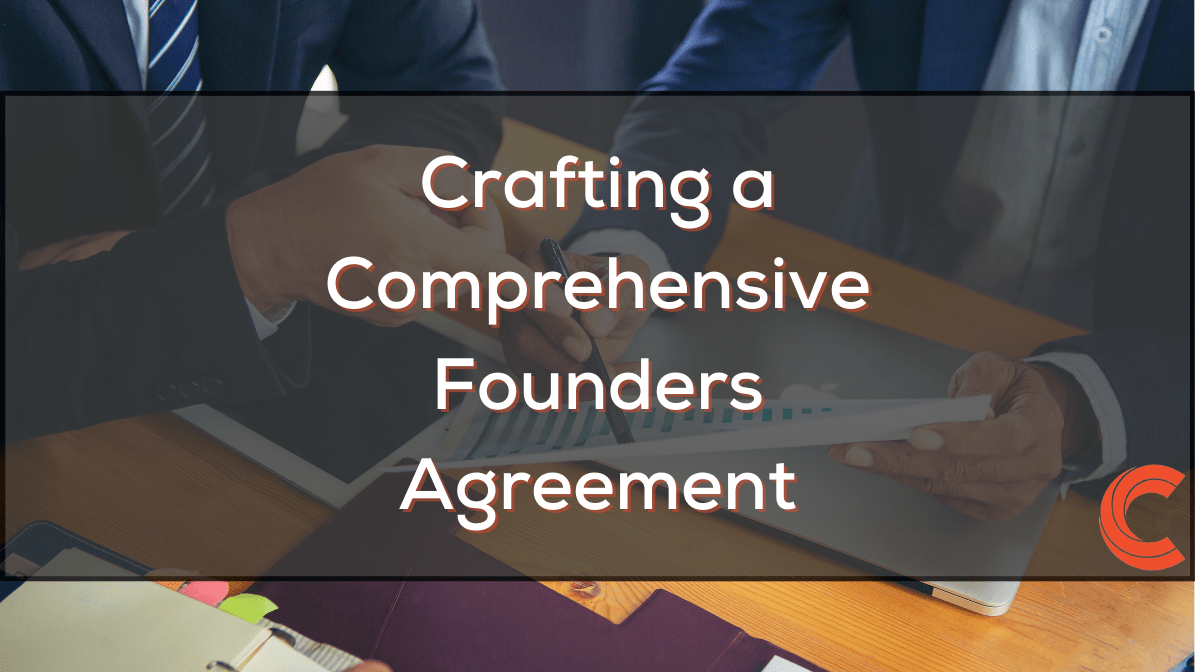The spark of a brilliant idea ignites countless startups every year. But transforming that spark into a thriving company requires a strong foundation. One crucial element for any successful startup is a well-crafted Founders Agreement. This legal document outlines the rights, responsibilities, and ownership stake of each founder, setting the stage for a smooth and collaborative journey.
Why is a Founders Agreement Important?
While the initial stages of a startup might be filled with excitement and shared vision, challenges and disagreements can arise down the road. A Founders Agreement anticipates these potential issues and establishes clear guidelines for how the founders will work together. Here’s why it’s important:
- Clarity and Alignment: The agreement defines each founder’s roles, responsibilities, and ownership percentage. This clarity helps prevent misunderstandings and ensures everyone is on the same page from the outset.
- Dispute Resolution: The agreement outlines procedures for resolving disagreements that may arise, minimizing disruptions and fostering a more collaborative environment.
- Commitment and Vesting: Vesting schedules can be established, ensuring founders remain committed to the company for a specified period. This helps prevent someone from leaving shortly after launch and reaping the rewards of everyone’s efforts.
- Exit Strategies: The agreement defines how founders can exit the company, whether through voluntary departure, buyouts, or unforeseen circumstances. This clarity protects both the departing founder and the remaining members.
Key Elements of a Comprehensive Founders Agreement
A well-drafted Founders Agreement should typically include the following elements:
- Names and Roles of Founders: This section clearly identifies each founding member and outlines their intended roles within the company.
- Ownership Structure: The agreement specifies the ownership percentage of each founder, typically based on factors like initial investment, time commitment, and expertise.
- Vesting Schedule: This defines the timeframe over which founders earn full ownership of their shares. This incentivizes founders to remain committed and dedicated to the company’s success.
- Management and Decision-Making: The agreement outlines how management decisions will be made, whether through majority vote, designated roles, or a combination of both.
- Confidentiality and Inventions: Confidentiality clauses protect sensitive company information, and invention assignment clauses ensure intellectual property developed during the founders’ tenure belongs to the company.
- Dispute Resolution: The agreement outlines a process for resolving disagreements among founders, such as mediation or arbitration, to avoid costly legal battles.
- Non-Compete Clauses (Optional): These clauses may restrict a departing founder from competing with the company for a specified period.
Additional Considerations for a Founders Agreement
While the core elements listed above are essential, there are additional considerations depending on your specific circumstances. These may include:
- Intellectual Property Ownership: If founders contribute existing intellectual property, the agreement should address ownership rights and licensing arrangements.
- Salary and Compensation: Founders may agree on initial salaries or profit-sharing arrangements, which can be outlined in the agreement.
- Termination Provisions: The agreement should detail how the company will handle situations like founder death, disability, or termination for cause.
- Future Funding: The agreement may address potential future funding rounds and how ownership percentages might be diluted in such scenarios.
Seeking Legal Help for Your Founders Agreement
A Founders Agreement is a critical legal document that sets the tone for your startup’s future. Consulting with an experienced business attorney specializing in startup law is highly recommended.
How Carbon Law Group Can Assist You
Carbon Law Group’s attorneys understand the unique needs of startups. We can help you with all aspects of crafting a comprehensive Founders Agreement:
- Drafting and Negotiation: We can draft a clear and well-structured agreement that reflects your specific ownership structure, roles, and goals. We can also guide you through negotiations with your fellow founders.
- Addressing Specific Concerns: Our experienced lawyers can address any questions or concerns you may have regarding specific clauses or provisions within the agreement.
- Future Considerations: We can help you anticipate potential future scenarios and ensure your agreement is flexible enough to adapt to your company’s growth.
Conclusion
A well-crafted Founders Agreement is an investment in the future success of your startup. By taking the time to discuss expectations, roles, and ownership structure upfront, you can set your company on a path of collaboration and shared success. For optimal results, seek guidance from an experienced startup law attorney at Carbon Law Group. Our team can ensure your Founders Agreement is tailored to your specific needs and protects the interests of all founders involved.





